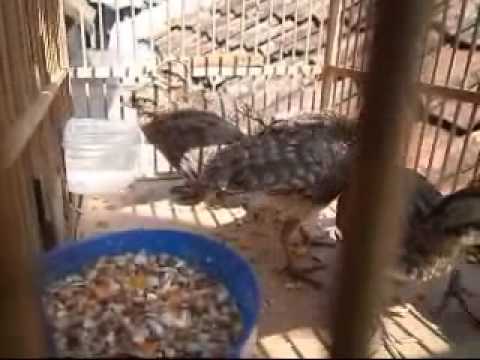- Sep 19, 2013
- 110
- 39
- 109
That was the call exactly. It sounds like the hen has been caught or trapped. Certain to attract the predator to her.
Follow along with the video below to see how to install our site as a web app on your home screen.
Note: This feature may not be available in some browsers.
You are not imagining. I've seen a video that the wild males do do what you've specifically said....I imagine wild roosters might help the hen find a nest site, but only when she is searching before the first egg is layed. The roosters I have seen do this do not do it every time the hen goes back to an established nest....
You are not imagining. I've seen a video that the wild males do do what you've specificallysaid.
I have had roosters that would help the hen look for a nest. He would call the hen to his chosen site. One would then sit on the egg after it was layed, but only for a short while. Never incubated. He was a bantam cross and not a wildie.
I imagine wild roosters might help the hen find a nest site, but only when she is searching before the first egg is layed. The roosters I have seen do this do not do it every time the hen goes back to an established nest.
I am sure the reason hens cackle after they lay is to signal to their rooster and flock that they want to rejoin the flock or the rooster. A locator call. The rooster will answer her cackle.
I had a Silky rooster which adopted some partly grown chicks. He was a young male and not allowed much by the old male. This one started to hang around with a hen and her brood (all Silkies). I thought he was waiting until the hen started to lay again, but when that happened she abandoned the chicks and went to the dominant male. The young rooster continued to care for the chicks and even brooded them at night. He was an excellent parent and later was an active breeder.
Interesting documentation. Your domestic male appear to display a higher degree of paternal care.The cackle produced by my domestic hens does appear to promote rejoining of hen with flock following egg deposition. The cackle is not a generic cackle, at least not to my ears, rather it is specific to situation. With my birds hen is immediately covered (mated) upon rejoining flock.
Paternal behavior I see comes with two levels of investment. Most typical is where father takes over parental duty once hen begins incubation of subsequent clutch which occurs usually when first brood is six to eight weeks post-hatch. Father provides leader ship during foraging, loafing, provides some measure of protection from predators, and defends interest of offspring against other non-flock members. More extreme version occurs with single hen harems where father also literally broods offspring even at night in ground nest, essentially stops defecating and crowing at night and even appears to produce a range of sounds and postures not unlike clucking. Both types of paternal care involve imprinting by both offspring and father and they end when a given brood is roughly 10 to 12 weeks old.
Such behavior is far from a fluke and is easily induced in any of my fully adult males.
Following link shows most recent bout of the paternal behavior I have been observing. First brood has been weaned even by father but he still tolerates rates offspring when he finds quality forage patches and calls them to such. Mother will be hatching brood two in about 4 days so their will be an abrupt change in relationship between between father and first brood at that time.
https://www.backyardchickens.com/t/882368/what-to-look-for-in-a-broody-rooster
